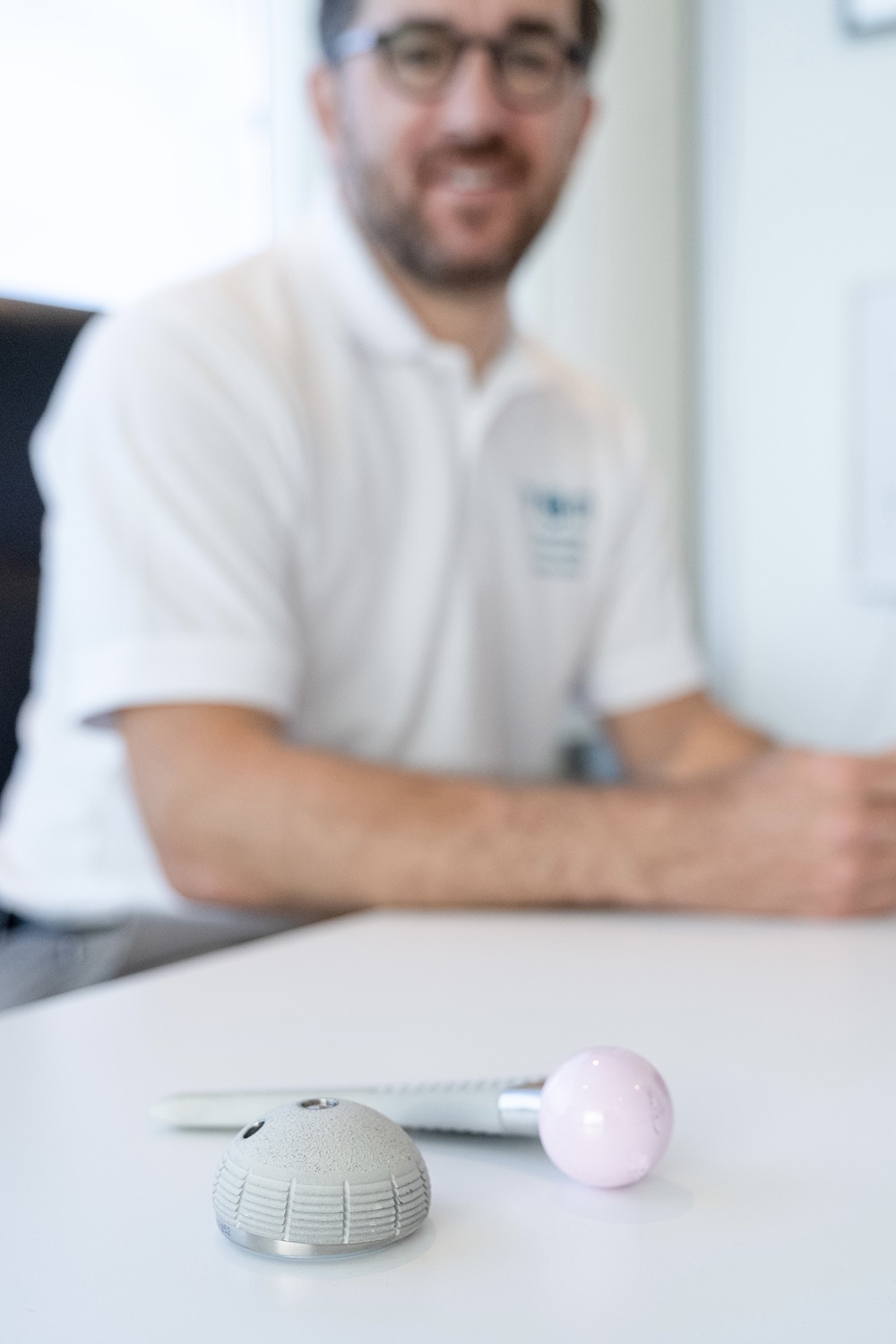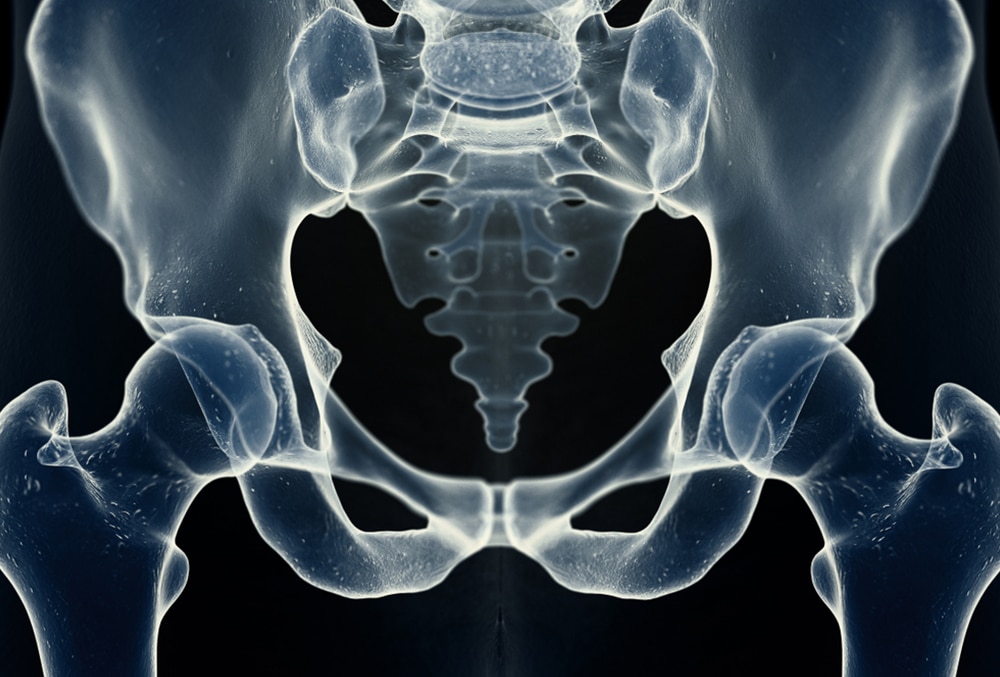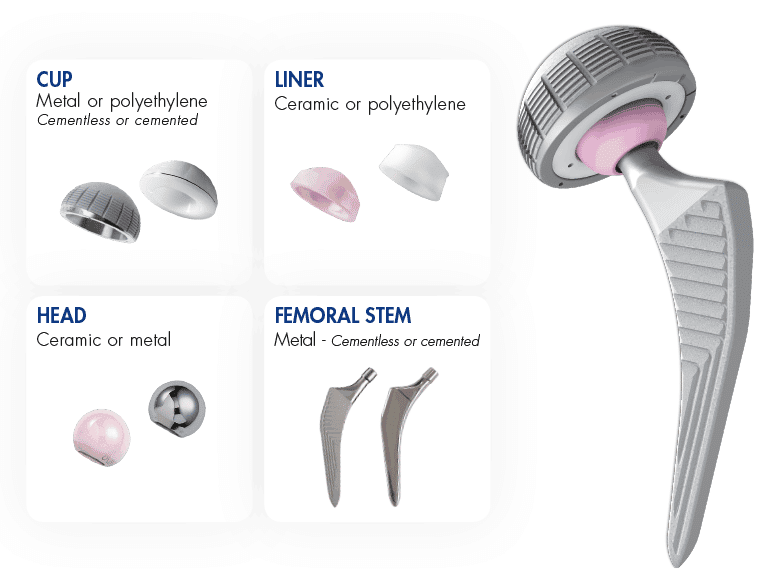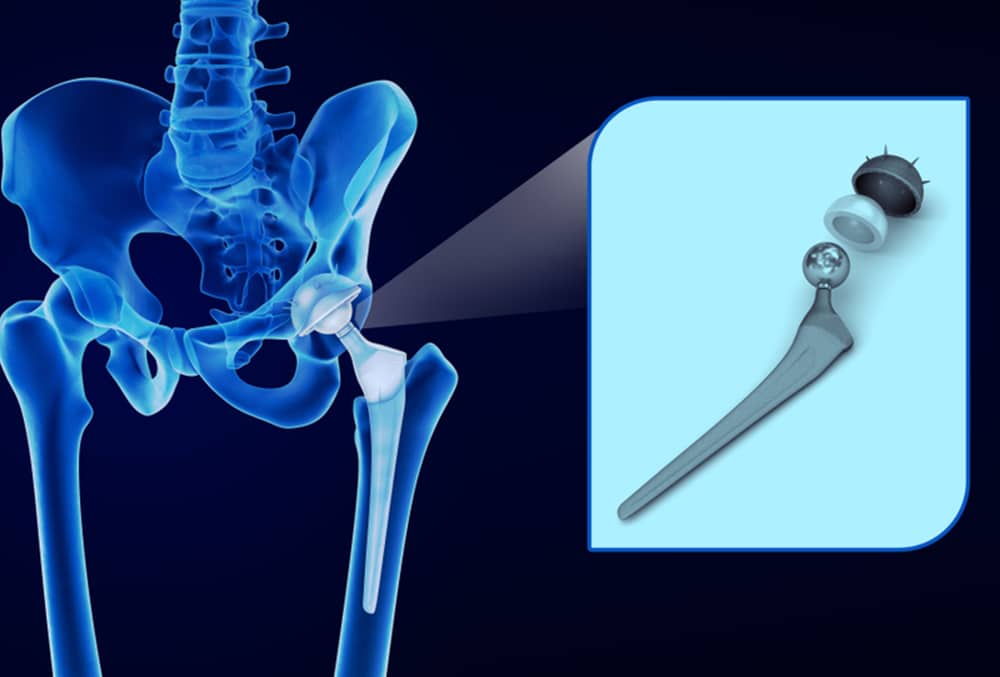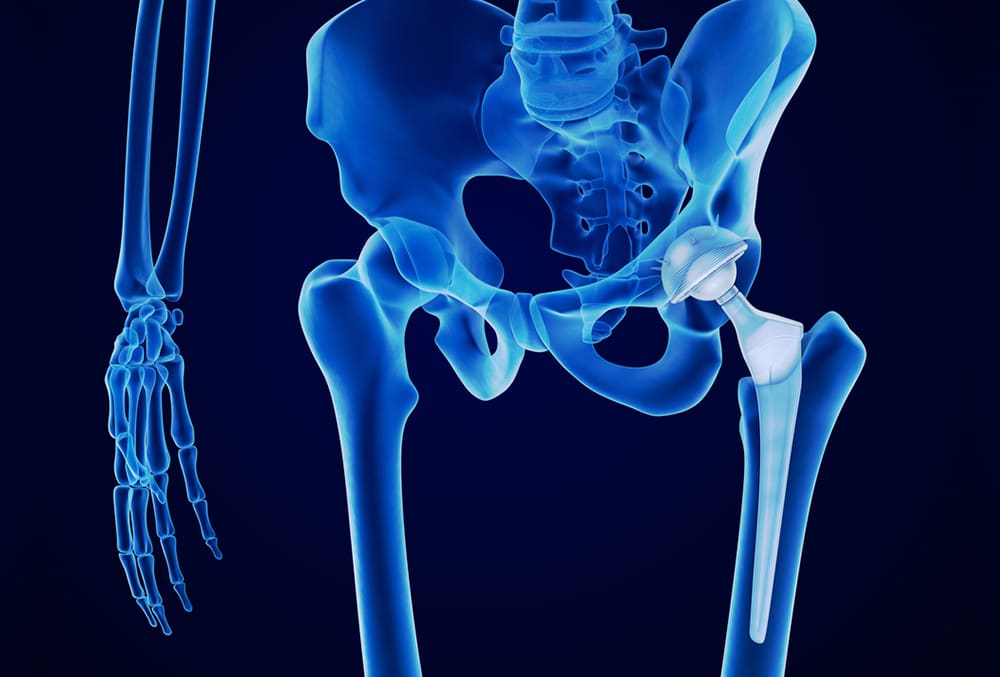My new hip
Osteoarthritis can be understood as wear of the articular cartilage. At the hip, this leads to pain and restricted movement due to overload and joint inflammation.
Only if all non-surgical measures do no longer help and your quality of life is restricted, the surgical replacement of the joint with an arthroplasty is a good option for regaining mobility and increasing quality of life. Even if this is a standardized and frequently performed procedure, there are many things to consider in advance.
Since there is a real flood of different surgical techniques and different implants, I would like to explain why the AMIS approach should be your first choice.
Everything you need to know about the new hip and surgery
Frequently asked questions & tips
We want to answer some frequently asked questions and give you a few tips.
leerzeile
When can I drive my own car again?
You can ride along in a car as a Co-driver after about a week. You should only drive a car on your own after you have been able to walk without crutches, which is achieved after 3-4 weeks.
When will I be fully able to work again?
The ability to work naturally depends on the profession. Many patients with heavy physical exertion or a standing or walking job return to their workplace after about 6-12 weeks. For other professions, an earlier return is also possible.
How long does it take to get used to the implant?
It can take up to a year to get used to your new hip. During this time, some patients report slight sensitivity to the weather in their hips. A slight clacking or other sensations from the hip can be felt. If anything changes in the feeling of your hip or if you experience any symptoms, you should see your surgeon.
Which sports can be practiced with a hip endoprosthesis?
Sports without heavy hip loads are suitable, such as:
- biking
- hiking
- walking (light jogging if necessary)
- swimming
- Golf
In individual cases and if the sport was performed before surgery:
- Tennis (if technique is good, doubles)
- Alpine skiing (if at all, then after a year at the earliest)
All competitive sports with direct opponent contact are generally unsuitable.
One should pay attention and take care of the “new joint”. The greater the stress on the new joint, the greater the risk of premature wear or loosening.
How long does a hip prosthesis last?
A hip endoprosthesis lasts about 15 years and longer (statistically).
Important factors of how long a hip replacement will last are:
- Physical strain
- Bone quality
- Material and design of the prosthesis
What do I have to consider for future surgeries?
Antibiotic prophylaxis should be carried out before any future operations, including in particular all tooth interventions. Since bacteria can enter the bloodstream during each operation, antibiotics protect your new hip joint from infection.
When do I have to have my prosthesis checked?
We recommend yearly controls.

